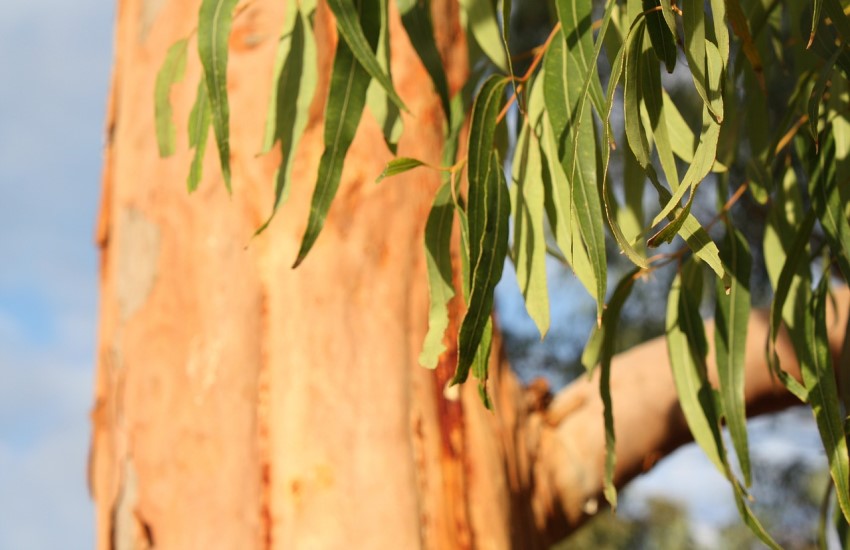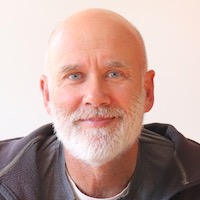Perth, Western Australia, 2023
It's only early spring, but I'm starting to sweat in Mum and Dad's back garden.
I wore my dark English suit for Dad's funeral, and if etiquette permits, I'd like to slip off the coat at the wake. Looking around the garden for guidance, I struggle to recognise my elderly aunts and uncles or fellow middle-aged cousins. And I have no hope of placing the children and grandchildren.
"Hi, Steve," a voice says behind me, and I turn to see Jenny. It's thirty years since our farewell dinner in England. And although we keep in touch on Facebook, seeing her in person instead of in a post feels different. Her short-cropped hair is dyed purple, the freckles have faded, and her face is lined, like mine. But I'd recognised Jenny sitting at the back of the church and hoped we'd catch up.
We exchange hugs and pecks on the cheek, and she adds, "I'm sorry about your dad."
"It wasn't unexpected," I reassure her. "And I guess we've reached that stage of our lives where we start farewelling the older generation."
"And step into their orthapedic shoes," Jenny observes. We laugh, and I recall our nights of philosophical debate and dark humour over cheap red wine in my London flat.
"Would you like a drink?" she asks, reading my mind. I nod, and we head to the refreshments table on the patio. As we walk, I tell Jenny about my divorce, and she tells me about her recent marriage to her long-term partner, a woman she met while working for an Indigenous land council.
"Congratulations," I say, clinking Jenny's wine glass. "It seems Australia has changed for the better in thirty-odd years."
"Thanks," she replies. "But the marriage equality plebiscite wasn't all smooth sailing. And there are those in the broader population and within our family who still don't accept the result or same-sex marriages."
"That's a shame," I say, appreciating why Jenny sat at the back of the church, separate from the family at the service. We turn towards the garden with our drinks, and I muse, "It's like that Pretenders song, some things change, some stay the same."
"You remember books and songs?" Jenny asks with a faint smile.
"Of course," I reply, "but not the song titles and all the lyrics."
We laugh, and then Jenny explains, "Some things have changed in Australia, but others have stayed the same. The fear of change, for instance. And those who spoke against same-sex marriage as the beginning of the end of western civilisation are now lining up to oppose the referendum for a First Nations voice to Parliament."
We sip our drinks, and I replay in my head the conversation with the airport taxi driver, who had asserted in his rear-vision mirror that the referendum was "a conspiracy to undermine Australia's sovereignty".
"That's also a shame," I say. "Because I've been thinking of returning to Australia."
Jenny raises an eyebrow and asks, "After all this time? Why?"
"Well, in addition to the divorce, after Brexit, England and Great Britain don't seem so great nowadays. I've never known the country to be so divided, and it's not just my befuddled memories of yesteryears."
"But the country should be rejoicing, you've got a new king," Jenny teases.
"We've got a new king," I counter, and we laugh and clink glasses again, like our old nights in my London flat.
"Mum's going to need help, too," I add, "and it's not fair to leave that responsibility to my brothers. I never planned to be away for so long when I set off on my gap year. But as you discovered, life doesn't work out the way we plan."
"No," Jenny laughs, "mine was more like a two-year gap!"
"And lastly, despite what you've said, I like the changes I've observed here from afar. Australia's become more multicultural, there's marriage equality, and finally a chance to recognise Indigenous Australians in the constitution and give them a voice in their own affairs."
I pause to take a sip before adding, "And after all these years, I'd like to be part of that."
Jenny smiles and clinks my glass. "We could do with your enthusiasm and support. Because even if the referendum succeeds, there's a long road of truth-telling and reconciliation and repair ahead."
An old memory surfaces, and I ask, "Have you ever searched for the Aboriginal girl who disappeared from your school?"
"No," Jenny says, turning to stare out at the garden. "I've had access to the records at various times. But I decided it wasn't my place to look for her. And whatever I found would have been for my benefit, not for her or her family's. However, whenever I see a young Indigenous girl, I think of her and her brother."
We say nothing for a moment, and then I confess, "Sometimes I feel how my brain works, as Mum used to say, is a blessing. It helps me forget the baggage in my life and remember the parts that matter, like books and songs and a special cousin." Jenny smiles, and I clink her glass.
"But," I continue, "I've never forgotten what I learned from books and documentaries about the true history of Australia and how angry and ashamed it made me feel, like you in 1992. So I hope the Yes vote succeeds, and we're celebrating with Indigenous Australians after the referendum."
"Hear, hear," Jenny concurs, and we clink our near-empty glasses.
Across from us, the younger girls and boys have kicked off their shoes and are climbing a tree in Mum's garden. "See," Jenny says, nodding at the kids, "some things change, some stay the same." We laugh and return to the table to refill our glasses.
© 2023 Robert Fairhead
Thanks to Kylie1 for sharing the Eucalyptus tree image on Pixabay.com.
Some Things Change was my submission for The Big Issue Fiction Edition 2023.
The Big Issue's brief was broad: Stories of all kinds – literary, comedy, romance, sci-fi, crime and everything in between, from 500 to 3000 words.
I regularly submit 500-word short stories to the Australian Writers' Centre's Furious Fiction writing challenges. And the temptation was to write a shorter-length story, similar to my Furious Fiction entries.
But I wanted to stretch myself and my writing. So I wrote a longer short story (just over 2700 words) consisting of three vignettes, set in different locations and times but with a common thread, two protagonists, cousins, exploring Australia's history and relationship with Indigenous peoples.
There are elements of autofiction in this story. I grew up in Perth in the 1960s and '70s (and supported the East Perth footy team), lived in England in my twenties and thirties from 1987 to 1995, and I'm now in my sixties, though I live in Sydney, not Perth.
Like my protagonist, Steve, since leaving Perth forty years ago, I've been on what I've called "a long journey of understanding" about Australia's true history and treatment of Indigenous peoples. And I've read widely on the subject, fiction and nonfiction, including Bruce Chatwin's, The Songlines, and shared several posts about my journey on Tall And True:
- The Songlines (December 2017)
- Alice Nannup and my Nan (July 2020)
- Reflecting on NAIDOC Week (November 2020)
- Pathfinders - History of Aboriginal Trackers (June 2021)
I also have a cousin named Jenny, who has fair red hair and freckles. But (and please forgive me for revealing this, Jen) she's one year older than me.
So while this story has elements of autofiction, it's mostly my imagination. For instance, although my cousin reminded me that we did climb trees together when we were younger, it wasn't at a family BBQ, she didn't visit me in England, and my father is still alive (thankfully!).
The parts about Indigenous Australians, however, are factual, as objective reading and research will confirm. As was my hope for the Voice to Parliament Referendum held on 14 October, 2023.
But I should have paid more attention to Jenny, who warned Steve, "Some things have changed in Australia, but others have stayed the same."
Why did I give Steve a "dodgy memory"? Because I also have trouble remembering names, places and dates, though I have a good memory for books and songs. And like Steve, I've learned some shameful things about Australia's past that I wish I could forget. A little like Australia conveniently forgotting parts of its history.
N.B. You can listen to the three vignettes of Some Things Change as episodes on the Tall And True Short Reads storytelling podcast:
- Episode 79: Perth, Western Australia, 1979
- Episode 80: London, England, 1992
- Episode 81: Perth, Western Australia, 2023
The last episode includes my reflections following the loss of the Voice Referendum.
Robert is a writer and editor at Tall And True and blogs on his eponymous website, RobertFairhead.com. He also writes and narrates episodes for the Tall And True Short Reads storytelling podcast, featuring his short stories, blog posts and other writing from Tall And True.
Robert's book reviews and other writing have appeared in print and online media. In 2020, he published his début collection of short stories, Both Sides of the Story. In 2021, Robert published his first twelve short stories for the Furious Fiction writing competition, Twelve Furious Months, and in 2022, his second collection of Furious Fictions, Twelve More Furious Months. And in 2023, he published an anthology of his microfiction, Tall And True Microfiction.
Besides writing, Robert's favourite pastimes include reading, watching Aussie Rules football with his son and walking his dog.
He has also enjoyed a one-night stand as a stand-up comic.



